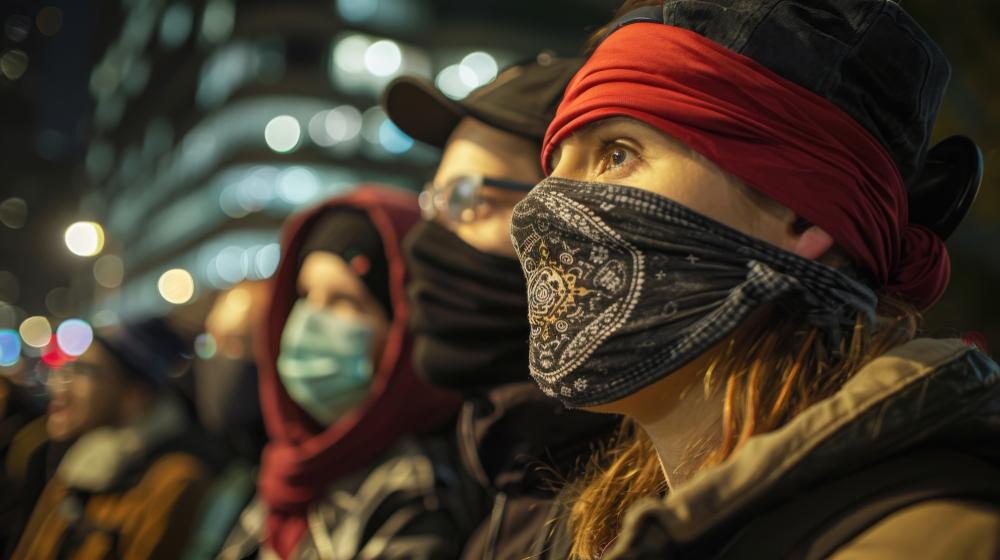How Pharmaceutical Giants Are Competing to Find the Best COVID-19 Treatment

The COVID-19 pandemic has posed an unprecedented global health crisis, affecting millions of lives and economies across the world. The rapid spread of the novel coronavirus led to an urgent need for effective therapies to combat the disease. As the pandemic progressed, a broad spectrum of companies, research institutions, and healthcare providers focused their efforts on developing treatments to mitigate the effects of COVID-19, ranging from antiviral drugs to immune modulators. The competitive landscape of COVID-19 therapies is a complex and dynamic field characterized by a mix of traditional and innovative approaches, numerous partnerships, and ongoing trials.
Download our case study to learn how DelveInsight helped a mid-sized EU firm assess competitors, emerging therapies, and the clinical landscape. Explore detailed analyses of mechanisms of action, administration routes, and top competitors to gain a competitive edge in strategic planning. Download Now Competitive Landscape of COVID-19 Therapies!
Key Therapeutic Approaches to COVID-19
The competition among pharmaceutical companies and biotech firms in the development of COVID-19 therapies primarily revolves around several therapeutic categories. These include antiviral treatments, monoclonal antibodies, corticosteroids, immune modulators, and adjunct therapies. Each therapeutic class has its own set of challenges, and many companies have focused their research on repurposing existing drugs that may offer a quicker route to approval.
1. Antiviral Drugs
Antiviral drugs are designed to target the SARS-CoV-2 virus, preventing it from replicating within the host’s cells. This category of therapies was among the first to be explored at the onset of the pandemic. Drugs like remdesivir, which was initially developed for the treatment of Ebola, were rapidly tested and approved under emergency use authorizations (EUAs) for COVID-19 treatment.
Remdesivir, developed by Gilead Sciences, has been one of the key antiviral drugs used to treat COVID-19. However, its efficacy has been debated, with studies showing mixed results. Several other antiviral drugs, including molnupiravir from Merck & Co. and Paxlovid (nirmatrelvir/ritonavir) from Pfizer, entered the race with similar goals: reducing viral load and improving patient outcomes.
Molnupiravir, in particular, has shown promise in reducing the risk of hospitalization and death in high-risk COVID-19 patients. Similarly, Paxlovid, a combination of two antiviral drugs, has emerged as one of the most widely used treatments for patients at risk of severe disease. Pfizer has seen significant demand for Paxlovid, which has strengthened its position in the global competition for COVID-19 treatments.
2. Monoclonal Antibodies
Monoclonal antibodies (mAbs) are another key category in the fight against COVID-19. These antibodies are designed to bind specifically to the spike protein of the SARS-CoV-2 virus, preventing the virus from entering human cells. Early in the pandemic, several companies rushed to develop monoclonal antibody treatments, with a handful of therapies gaining emergency use authorization from regulatory agencies.
One of the most notable players in this category is Regeneron Pharmaceuticals, which developed a combination of two monoclonal antibodies, casirivimab and imdevimab, marketed under the name REGEN-COV. This treatment has shown efficacy in reducing the risk of severe disease in both pre-exposure prophylaxis and early-stage COVID-19 patients. Similarly, Eli Lilly’s bamlanivimab and etesevimab, also authorized for emergency use, have been key contenders in the market.
However, the emergence of new variants of concern (VOCs) like Delta and Omicron posed a challenge to the effectiveness of certain monoclonal antibodies. This has led to constant monitoring of antibody effectiveness and the development of next-generation treatments that can neutralize a broader range of viral variants.
3. Corticosteroids and Immune Modulators
Corticosteroids, especially dexamethasone, have proven to be one of the most effective treatments for severe COVID-19. The World Health Organization (WHO) and other health authorities have recommended corticosteroids for patients with severe respiratory symptoms, as they reduce inflammation and prevent cytokine storms. Dexamethasone gained widespread use after the results of the RECOVERY trial, which demonstrated its ability to reduce mortality rates in hospitalized patients with severe COVID-19.
Alongside corticosteroids, other immune modulators, such as tocilizumab (an interleukin-6 (IL-6) inhibitor), have been studied for their role in managing COVID-19. Tocilizumab, developed by Roche, has been used to manage the inflammatory responses that accompany severe COVID-19. Other immune modulators, such as baricitinib (a Janus kinase inhibitor), have also been tested, with some therapies receiving regulatory approvals under emergency use guidelines.
Download our case study to learn how DelveInsight helped a mid-sized EU firm assess competitors, emerging therapies, and the clinical landscape. Explore detailed analyses of mechanisms of action, administration routes, and top competitors to gain a competitive edge in strategic planning. Download Now Competitive Landscape of COVID-19 Therapies!
Key Players in the Competitive Landscape
Several pharmaceutical companies have emerged as major players in the development of COVID-19 therapies. The competitive nature of the pharmaceutical industry has led to collaborations, licensing agreements, and strategic partnerships to accelerate the development and distribution of these therapies.
1. Gilead Sciences
Gilead Sciences has been a key player in the antiviral space, with its remdesivir being one of the first drugs to receive emergency use authorization for COVID-19. Although its efficacy has been questioned in some studies, Gilead continues to build on its expertise in antiviral research and has expanded its portfolio with the development of new therapies and ongoing research into COVID-19 variants.
2. Pfizer
Pfizer has not only been a leading producer of vaccines but has also made significant strides in the development of antiviral therapies. The company's Paxlovid has become one of the most widely used treatments for COVID-19, and Pfizer has shown strong performance in clinical trials for other treatments in its pipeline. Its commitment to COVID-19 research has placed it at the forefront of the global response.
3. Regeneron Pharmaceuticals
Regeneron is a key player in the monoclonal antibody segment, with its REGEN-COV treatment gaining significant attention for its ability to reduce the risk of severe disease in high-risk patients. The company has also been involved in partnerships to expand access to its therapies and is continuously monitoring the performance of its drugs against emerging variants.
4. Merck & Co.
Merck's molnupiravir has been another significant contribution to the antiviral landscape. With its potential to prevent hospitalization and death in high-risk patients, molnupiravir has generated interest worldwide. Merck has also engaged in collaborations to distribute its treatment in various global markets.
5. Eli Lilly
Eli Lilly’s contributions to COVID-19 therapies, particularly in the monoclonal antibody space, have been notable. The company’s bamlanivimab and etesevimab combination, although facing challenges with emerging variants, has been pivotal in providing early-stage treatment options to patients at risk.
Download our case study to learn how DelveInsight helped a mid-sized EU firm assess competitors, emerging therapies, and the clinical landscape. Explore detailed analyses of mechanisms of action, administration routes, and top competitors to gain a competitive edge in strategic planning. Download Now Competitive Landscape of COVID-19 Therapies!
Emerging Challenges and Opportunities
While the development of COVID-19 therapies has been a remarkable achievement, the path ahead is not without challenges. The emergence of new variants, such as the Delta and Omicron strains, has made it increasingly difficult to predict the trajectory of the pandemic. Therapies that were initially highly effective may become less potent against newer strains, prompting ongoing research and development efforts.
Furthermore, the global competition for vaccine and therapy distribution has underscored the need for equitable access to treatment across the world. The competition between countries and organizations to secure supplies of effective therapies presents both logistical and ethical challenges, particularly for low-income nations.
However, these challenges also present opportunities. Companies are increasingly focused on creating next-generation therapies that can target a broader range of variants, improve treatment regimens, and enhance patient outcomes. The global response to COVID-19 has spurred innovation and collaboration, which may lead to future breakthroughs in both infectious disease treatment and healthcare infrastructure.
Conclusion
The competitive landscape of COVID-19 therapies is a dynamic and rapidly evolving field. Multiple therapeutic approaches, ranging from antiviral drugs and monoclonal antibodies to immune modulators, are being explored by leading pharmaceutical companies. Despite the challenges posed by emerging variants and global access issues, the race to find effective treatments for COVID-19 continues to drive innovation, collaboration, and investment in the pharmaceutical and biotech industries.
As new therapies emerge, the landscape will undoubtedly shift, with companies constantly competing for market share, regulatory approvals, and global access to their products. The competitive nature of this field reflects the broader urgency of overcoming the COVID-19 pandemic and underscores the pivotal role of pharmaceutical companies in shaping the future of global healthcare.





